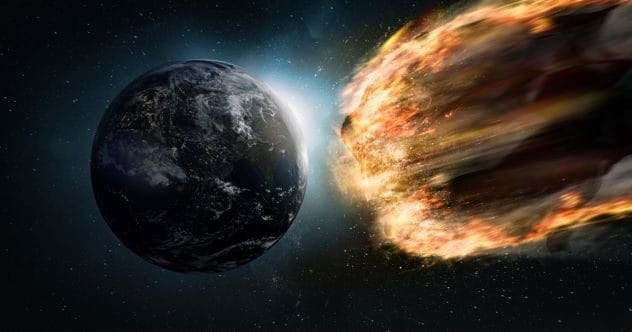Humans have an uncanny knack for predicting the end of the world. From ancient prophecies to modern tech fears, the ‘apocalypse’ has been ‘just around the corner’ more times than we can count. While most of us now know that Y2K and 2012 didn’t quite bring about global catastrophe, the reactions of those who truly believed are a fascinating glimpse into human nature.
It’s not just fringe cults either. Artists, celebrities, and even powerful public figures have found themselves swayed by apocalyptic beliefs. Get ready to explore ten stories of people whose doomsday fears led them down some truly strange, occasionally silly, and sometimes downright scary paths.
10. Burning Priceless Renaissance Art
It seems that for as long as we’ve predicted the world’s end, we’ve also tried to purify ourselves by burning ‘bad’ things. In 15th-century Florence, this took the form of the infamous “Bonfire of the Vanities.” In 1497, a friar named Savonarola convinced the city that the Apocalypse was a mere three years away. His solution? Burn anything that could distract from religious devotion.
Savonarola wasn’t just some street preacher; he had seized control of Florence from the Medici family. This influence extended even to legendary artists like Sandro Botticelli, the painter of The Birth of Venus. It’s believed Botticelli himself may have thrown some of his invaluable artworks onto the pyre. Thankfully, concerned Florentines eventually put a stop to Savonarola’s destructive spree, and he was later executed, saving untold artistic heritage.
9. Panic Buying “Anti-Comet” Pills and Umbrellas
Halley’s Comet graces Earth’s skies roughly every 76 years, a celestial event recorded since ancient times. But its 1910 appearance sparked widespread panic. Why the sudden fear? The culprit was a new science called “spectroscopy.”
A few years prior, Chicago scientists used spectroscopy to analyze another comet’s tail, reporting it was full of invisible toxic gas. French astronomer Camille Flammarion then predicted that Halley’s Comet’s tail, supposedly containing similar gases, would envelop Earth and suffocate everyone. Despite assurances from other scientists, misinformation spread like wildfire. People sealed their windows and hunkered down.
Naturally, some saw an opportunity. Enterprising (and unscrupulous) businessmen began hawking “anti-comet pills,” “comet protecting umbrellas,” and gas masks. Luckily, the comet’s tail missed Earth by a comfortable 197,000 miles, leaving only red faces and lighter wallets.
8. Climbing an Extraterrestrial Pyramid Mountain
You might think doomsday panics are a relic of the past, but the 21st century has had its share. Remember the widespread belief that the Mayan calendar predicted the world would end on December 21, 2012?
While most shrugged it off, some took it very seriously – seriously enough to fly to Serbia. Travelers, some from as far as Australia, converged on Mt Rtanj. This Carpathian mountain, with its peculiar pyramid-like peak, was believed by some to be an alien-built structure emitting a protective magnetic force. Hundreds braved blizzards, hoping this mystical mountain would shield them from the impending apocalypse. Nearby villages were reportedly swamped with these hopeful survivors.
7. Spending $10 Million
Not everyone who believed in the 2012 Mayan apocalypse sought mystical protection; some simply decided to go out with a bang. American reality TV power couple Spencer Pratt and Heidi Montag, famously known as “Speidi,” were among them. Having made a fortune (Spencer estimated around $10 million) from shows like The Hills and Celebrity Big Brother UK, they took the asteroid-hitting-Earth prophecy to heart.
Their plan? Spend every last cent before the world ended. Their shopping list included a “million-dollar wardrobe,” a monster truck, extensive plastic surgery, and, rather uniquely, paying people to open doors for them. Spencer also mentioned generously gifting cash and cars to friends. They successfully blew through their fortune and, by June 2011, were reportedly living rent-free at Spencer’s father’s house.
6. Posing as a Bow-Tie Sporting Weatherman
Blowing your savings on an ancient prophecy is one thing, but what about when the threat feels more credible? Climate change, while debated, certainly carries more weight than Mayan crystal balls. In June 2014, a surprising figure graced the cover of Le Parisien Magazine with an alarming message: only 500 days left to save the planet.
This wasn’t a fringe activist, but Laurent Fabius, France’s then-foreign minister. Even more startling was his portrayal: a smiling, bow-tie-clad weatherman pointing at a map. The image quickly became an internet sensation, with the map hilariously replaced by E.T., God, or even nostrils. The French public responded with more amusement than the seriousness Fabius likely intended, making him another politician in a series of accidentally comical magazine covers.
5. Enabling – and Even Encouraging – Environmental Destruction
While Laurent Fabius aimed to spur environmental action, other politicians, also believing the end was nigh, took a starkly different approach. James Watt, U.S. Secretary of the Interior under President Reagan, was one such figure. He viewed natural resources as ripe for exploitation, disdaining environmentalists for supposedly restricting individual freedoms and economic growth.
As secretary, Watt actively distributed oil, gas, and coal leases and loosened environmental protection regulations. His most infamous moment came during a House Interior Committee hearing. When questioned about preserving wilderness for future generations, he chillingly replied, “I do not know how many future generations we can count on before the Lord returns.” Essentially, he believed Judgment Day was imminent, making conservation pointless. His views were widely criticized and even satirized on Saturday Night Live.
4. Making Doomsday Prepping a Government Priority
By December 1999, the world was deeply reliant on computers for everything from banking to hospital equipment. The looming Y2K bug – a coding issue with how computers would transition from 1999 to 2000 – sparked fears of global chaos. While some dismissed these worries as paranoia, many powerful organizations, including the Canadian government, took them very seriously.
Following a 1998 investigation into the bug’s potential consequences, Y2K preparation became Canada’s top priority. An astounding 11,000 people worked on these preparations, overshadowing any new laws or programs. As New Year’s Eve 1999 approached, Canada had been gearing up for 18 months. They had 13,000 troops on standby, quadrupled cash reserves at the central bank, and placed top cabinet ministers on lockdown. In retrospect, it might seem like the world’s most expensive software update, but real problems were indeed found and fixed. A senior bureaucrat aptly described Y2K as both “the biggest hoax ever pulled and the biggest crisis ever averted.”
3. Suing to Stop the Large Hadron Collider
While the Canadian government worked to avert a Y2K crisis, in 2008, the U.S. government found itself sued for potentially causing one. A retired nuclear safety officer and a journalist filed a lawsuit against the Department of Energy and research institutions like CERN (European Organization for Nuclear Research) over the activation of the Large Hadron Collider (LHC).
Their fear? That the immensely powerful LHC could literally end the world. They argued it might create a mini black hole that would swallow Earth (despite theories from Einstein and Stephen Hawking to the contrary), or that it could generate “strange matter” fusing everything into a single clump, or even new particles causing rapid atomic decay. The lawsuit was ultimately dismissed in 2010, as the plaintiffs failed to prove a credible threat.
2. Moving to Texas to Await the Second Coming
No list of doomsday reactions would be complete without a cult leader. Chen Hong-min, the Taiwanese leader of the Chen Tao cult, convinced his followers the world was ending. Fortunately, unlike some infamous cults, he didn’t demand they end their lives. In a surprising turn, when his prophecy failed, he actually admitted his mistake.
Chen gained his following after defecting from a UFO religion in the early 1990s. By 1995, he declared North America the “land of God.” He and his followers relocated there, specifically to Garland, Texas – chosen because “Garland” supposedly sounded like “God-land” – to await God’s arrival in cloud-shaped flying saucers. Photos from the time show a group clad in all-white uniforms and wide-brimmed hats. When the UFOs didn’t appear on the predicted date of March 31, 1998, Chen held a press conference, labeling his prophecy “nonsense.” Many followers left, though he later reinterpreted his statements and moved the remaining cult to New York.
1. Wearing a Rainbow Wig, Becoming a TV Star, and Taking Hostages
During the 1970s and 80s, a distinctive figure—or rather, a distinctive hairdo—became a familiar sight at major athletics events. Rollen Stewart, known as the “Rainbow Man,” wasn’t an athlete, but his wild, rainbow-colored wig ensured he frequently appeared on camera, achieving minor celebrity status. However, beneath the fun-loving facade lay a darker story.
In the 1980s, Stewart converted after watching a TV evangelist and began displaying Bible references during his camera appearances, leading directors to avoid him. His fleeting fame never translated into fortune, and he soon found himself broke and homeless. Convinced Jesus was about to return, he desperately wanted to warn the world. After a stink-bombing campaign failed to garner enough attention, he resorted to more drastic measures. In 1992, he took three hostages at a Los Angeles hotel, leading to an eight-hour standoff with police, during which he demanded television airtime to proclaim Judgment Day. He later stated that while his timing might have been off, his actions were “a crime to prevent a greater harm.”
These stories, ranging from the eccentric to the alarming, show just how profoundly the belief in an impending apocalypse can shape human behavior. Whether driven by religious fervor, scientific misinterpretation, or sheer opportunism, the reactions to perceived end-times are a testament to our species’ creativity, fear, and sometimes, our incredible gullibility.
What’s the wildest doomsday reaction you’ve ever heard of? Did any of these surprise you? Leave your comment below and share your thoughts!










